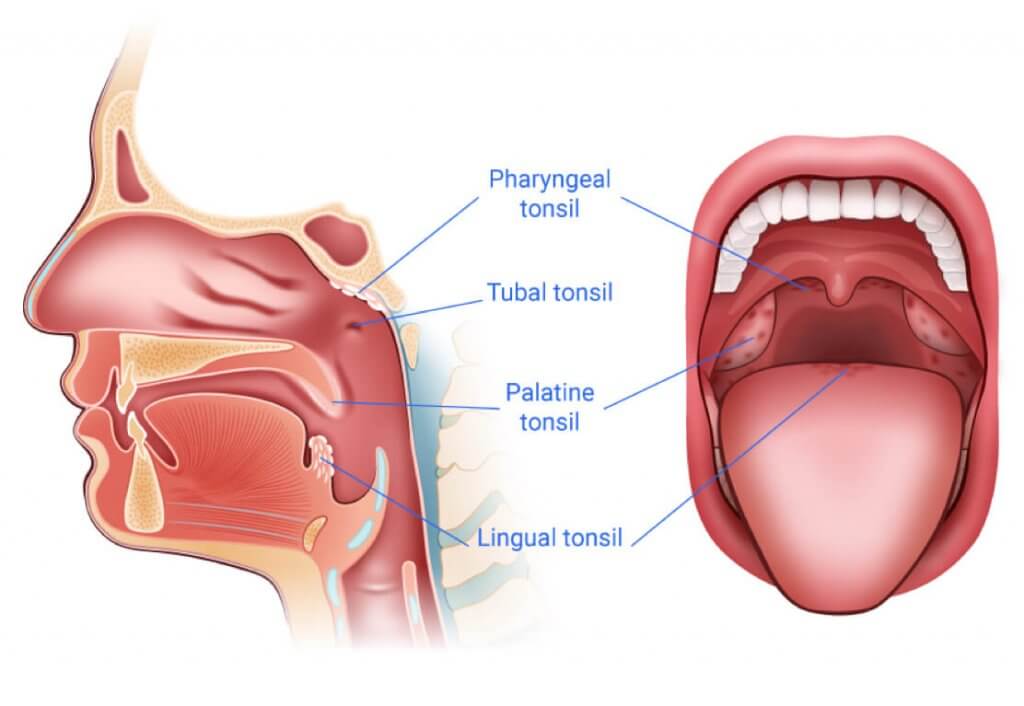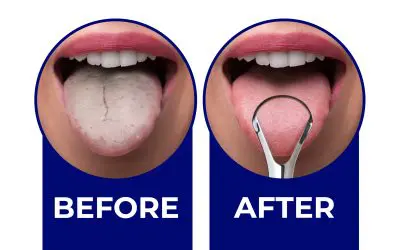What Is the Tonsils’ Function?
If you are considering having your tonsils removed, you may first want to know more about their function. Although many people have heard about tonsils, most are unaware of the useful role they play in their bodies.
How much do you know about your tonsils? Learning more about these small but important organs, will help you stay healthy. Who knows, you might even reconsider your decision to have them removed.
- What Exactly Are Tonsils and Where Are the Tonsils Located?
- How the Tonsils Function?
- Your Tonsils Matter!
- Health Issues Affecting Tonsils
- How to Take Care of Your Tonsils
- Let Your Tonsils Keep Functioning!
What Exactly Are Tonsils and Where Are the Tonsils Located?
The tonsils are oval pads of tissue located at various points around your throat. Tonsils are arranged in pairs on either side of your throat and are classified into three groups based on their location:
- Adenoid or pharyngeal tonsils near the nasal cavity
- Lingual tonsils function are on the back of the tongue
- Palatine tonsils on either side of the throat just behind the last teeth

Palatine tonsils function are the only ones that you can see when you open your mouth so they may be the type you picture when talking about tonsils. These tonsils can have a wrinkled or pitted appearance and sometimes need to be removed in a tonsillectomy procedure if they become infected.
How does the Tonsils Function?
What is the purpose of tonsils and what is the function of tonsils? Your tonsils are functional parts of your immune system that fight off pathogens and prevent disease. All of the tonsil tissue in your throat combined form a “ring” of guardians that act as your body’s first line of defense against invading viruses and bacteria. In fact, your tonsils are often the very first parts of your immune system that activate the other components of the network.
The tonsils are made of lymphatic tissue which is loaded with the agents that your body needs to fight disease. These agents include lymphocytes and macrophages. Macrophages immediately attack and devour invading pathogens while the lymphocytes store ‘memories’ of the invasion so that the body can respond even faster on the next instance of infection.

Your Tonsils Matter!
There is some research indicating that people who’ve had their tonsils removed aren’t negatively affected in any way. In addition, there are larger sites of lymphatic tissue in other areas of the body that seem to play a bigger role in major infections than the little tonsils do.
It’s easy to assume that tonsils thus aren’t really all that necessary.

One study published in September of 2017, however, suggests just the opposite.
A university hospital in Germany examined the surgically-extracted tonsils of 20 adult volunteer patients. The tonsillar tissue was examined to see how its disease-fighting agents responded to pathogens.
The study found that the tonsils with different disease backgrounds do indeed respond differently to pathogens. This suggests that the tonsils have the ability to detect various kinds of threats to the body and adapt their reactions.
After closely analyzing their findings, the study conductors could state the following:
“These data underscore the notion that tonsils are functional immune entities and suggest that in future tonsillotomy, i.e. only a partial resection of the tonsils, should be discussed and considered more often as an alternative to tonsillectomy in case of CT in adults.”
In summary, this study suggests that the tonsils are a necessary part of the immune system. So you should never be in a hurry to remove your tonsils. As future studies continue to shed light on the role of tonsils, these small patches of tissue will occupy an increasingly important place in immune health and medicine.
Your tonsils are essential to having a healthy body, but they can occasionally cause a little trouble.

Health Issues Affecting Tonsils
Why do people remove their tonsils if they have such an important function? There are a few tonsil problems that can necessitate a tonsillectomy for some individuals:
- Chronic tonsil infections that don’t respond to antibiotics
- Recurring strep infections
- Mononucleosis
- Cancer
Conditions that merit tonsil removal are actually quite uncommon. Most people suffer from tonsil complaints such as bad breath and tonsil stones. These tonsil issues are usually due to having cryptic tonsils, that is, tonsils with deep wrinkles and pits that trap bacterial debris. Such problems are easy to remedy at home by taking good care of your tonsils.
How to Take Care of Your Tonsils
Healthy tonsils can help you enjoy fresh breath and a fully-functioning immune system. As they are located closer to the front of the mouth where food debris and bacteria collect, your palatine tonsils are more likely to develop stones and cause bad breath. Fortunately, these tonsils are easy for you to see and access to keep them clean.
Here are a few ways you can keep your tonsils clean and healthy
- Practice good oral hygiene. The less debris there is on your teeth and gums, the less will wind up on your tonsils. Brush and floss daily to remove plaque bacteria. Additionally, rinse your mouth with water after meals to prevent food from settling in your tonsil pits.
- Gargle. Swish and gargle once or twice daily with a warm solution of water and salt to slow down bacterial buildup and soothe sore tonsils.
- Scrape your tongue. Your tongue is a highly textured surface that can capture a lot of bacteria and food residue. Scraping your tongue every day before your brush is an excellent way to prevent that film from moving to your tonsils where it can create tonsils and leave an odor.
- Clean your tonsils. Cleaning your tonsils is the most problem-focused preventative step you can take against bad breath and tonsil infections. This will also prevent debris from calcifying in tonsil pits.

Let Your Tonsils Keep Functioning!
Unfortunately, unnecessary tonsil removal is being pushed on patients to a shocking extent. In South Africa, for example, ear, nose, and throat surgeon (ENT) Dr. Martin Young revealed why the country provides the highest number of tonsillectomies in the world. Patients will approach a doctor and ask for a tonsillectomy simply because they’re convinced that is what they or their child needs. Doctors then capitalize on this ignorance and willingly provide the surgery without offering any alternatives because the tonsillectomy generates more profit.
As of a study conducted in 2013, an average of 1,800 out of every 100,000 youths in South Africa had a tonsillectomy.
In the United States alone 530,000 tonsillectomies are performed on children every year.

Tonsils have a function, so think twice before removing them
Your tonsils are a key part of your body so you should do all you can to avoid having them removed. As yet another study demonstrates, you have good reason to hold onto your tonsils.
The University of Melbourne conducted an extensive analysis of the medical records of nearly 1.2 million individuals who had their tonsils removed in childhood. The team that analyzed the data found that as many as one in five of the study subjects presented with upper respiratory disease. Comparing the entire data against that of people who never had a tonsillectomy revealed something very interesting: individuals who have had a tonsillectomy in childhood were nearly three times more likely to develop upper respiratory problems than those who did not.
The study suggested that people who have their tonsils removed are at greater risk for developing conditions such as:
- Asthma
- Allergies
- Influenza
- Pneumonia
It’s clear that leaving your tonsils in place allows them to continue functioning in a critical way to protect your body.
Keeping your tonsils clean and healthy is easier than you may think, thanks to Oravix. To do so, we’ve created the perfect set of tools with your oral health in mind to make tonsil care simple and worry-free. By taking good care of your tonsils, they can keep functioning smoothly, protecting your health for many years to come.



